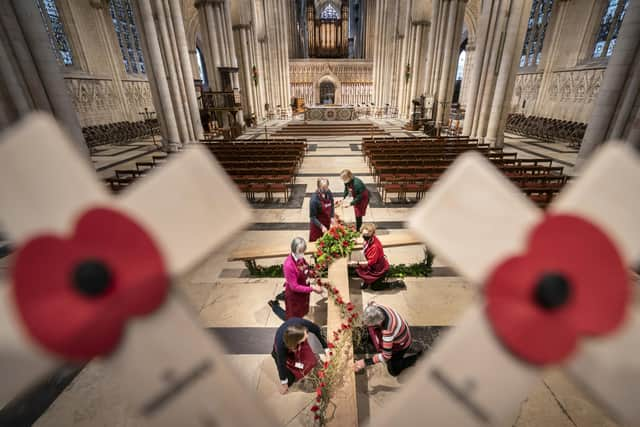Racism is never casual, in cricket or anywhere else – David Behrens
The exiled Prince Harry was the latest to chime in, suggesting that the headline writers’ word Megxit be added to the list of those best left unspoken. It was misogynistic, he said; a slur directed at his wife, invented by a troll on social media and then amplified by the rest of the world.
Harry was speaking at a panel discussion in America – where else would he be? – on what its organisers had termed the Internet Lie Machine. He called it a “global humanitarian crisis” of misinformation.
Advertisement
Hide AdAdvertisement
Hide AdGiven that Megxit is simply a portmanteau of “Meghan” and “exit”, and that the latter is not in dispute, it’s hard to see how it can be reasonably considered offensive. But that just goes to show how easy it is to cause offence without realising it.


Andrew Gale, Yorkshire’s first team cricket coach, knows this better than anyone, having been suspended this week over an 11-year-old tweet which contained a three-letter word that most people would recognise as anti-Semitic.
Or would they? A survey published the following day – and the closest anything has come lately to addressing the root cause of taking offence – revealed that fully half the population of this country does not know that six million Jews were murdered in the Holocaust. A similar number believes that fewer people now care about what happened, and as many again think that something on a similar scale could take place today.
Advertisement
Hide AdAdvertisement
Hide AdThat has less to do with misinformation than with failing to see the wood for the trees in this forest of political correctness we have planted. Blinding ourselves to the obvious is a very good way of letting history repeat itself.


The survey on the Holocaust made especially depressing reading. Two-thirds of those polled had assumed that Neville Chamberlain’s government allowed Jews to migrate to the UK, when in fact it shut the door on them at the outbreak of the war, and it was left to charities and private individuals to organise the Kindertransport initiative which rescued nearly 10,000 child refugees – many of whom made their lives in Yorkshire. Three-quarters of respondents to the survey knew nothing of that. Yet nearly all said they had “definitely heard” of the Holocaust.
It’s that kind of inattention to detail, and the failure to consider the enormity and the lasting effect of the travesty, that allows racism to become casual.
Advertisement
Hide AdAdvertisement
Hide AdAndrew Gale’s employer has become a lightning rod for the debate, and the point at issue seems to be how much offence one can cause without stepping over the line of what could be written off as “banter”. Yorkshire County Cricket Club’s collective failure has been in not realising that the line shifts with the sands of time, and that the most enlightened people move with it. It is not for those who bandy about racial slurs to say whether they are offensive; that is the prerogative of those at whom they are aimed.
But the path to enlightenment must be navigated by common sense, not through the hideous hall of mirrors that the internet has become – one in which the loudest but not wisest voices dictate the route to righteousness. Knowing that certain words and phrases are offensive is not enough; real wisdom comes from understanding why. That is a lesson they have yet to learn at Headingley.
But they’re not the only ones. The current trend for tearing down statues and renaming streets on the say-so of online pressure groups has gained traction because we have let ourselves sleepwalk into a culture of rewriting public history and heritage without due process. As the broadcaster and former politician Trevor Phillips argued the other week, if we are to reinvent our past, we should do so because we have considered the facts rationally and dispassionately, not simply because we feel the need to placate campaigners whose agenda we don’t fully understand. It’s a nuanced debate that cannot be reduced to a single word, no matter how much the Duke of Sussex dislikes one in particular.
On this of all weekends, we shouldn’t lose sight of the fact that remembrance – whether of events or individuals – can never be selective.
Advertisement
Hide AdAdvertisement
Hide AdSupport The Yorkshire Post and become a subscriber today. Your subscription will help us to continue to bring quality news to the people of Yorkshire. In return, you’ll see fewer ads on site, get free access to our app and receive exclusive members-only offers. Click here to subscribe.
Comment Guidelines
National World encourages reader discussion on our stories. User feedback, insights and back-and-forth exchanges add a rich layer of context to reporting. Please review our Community Guidelines before commenting.